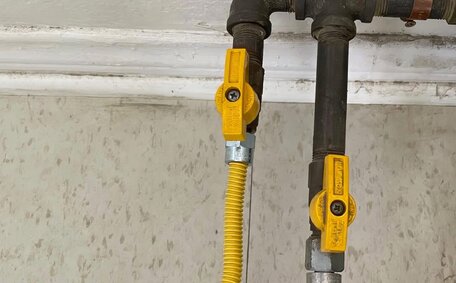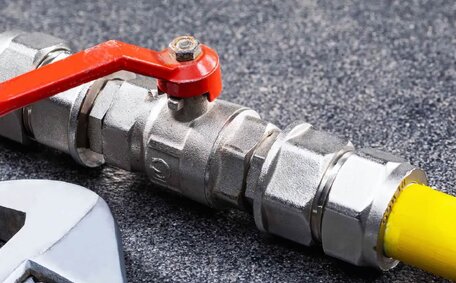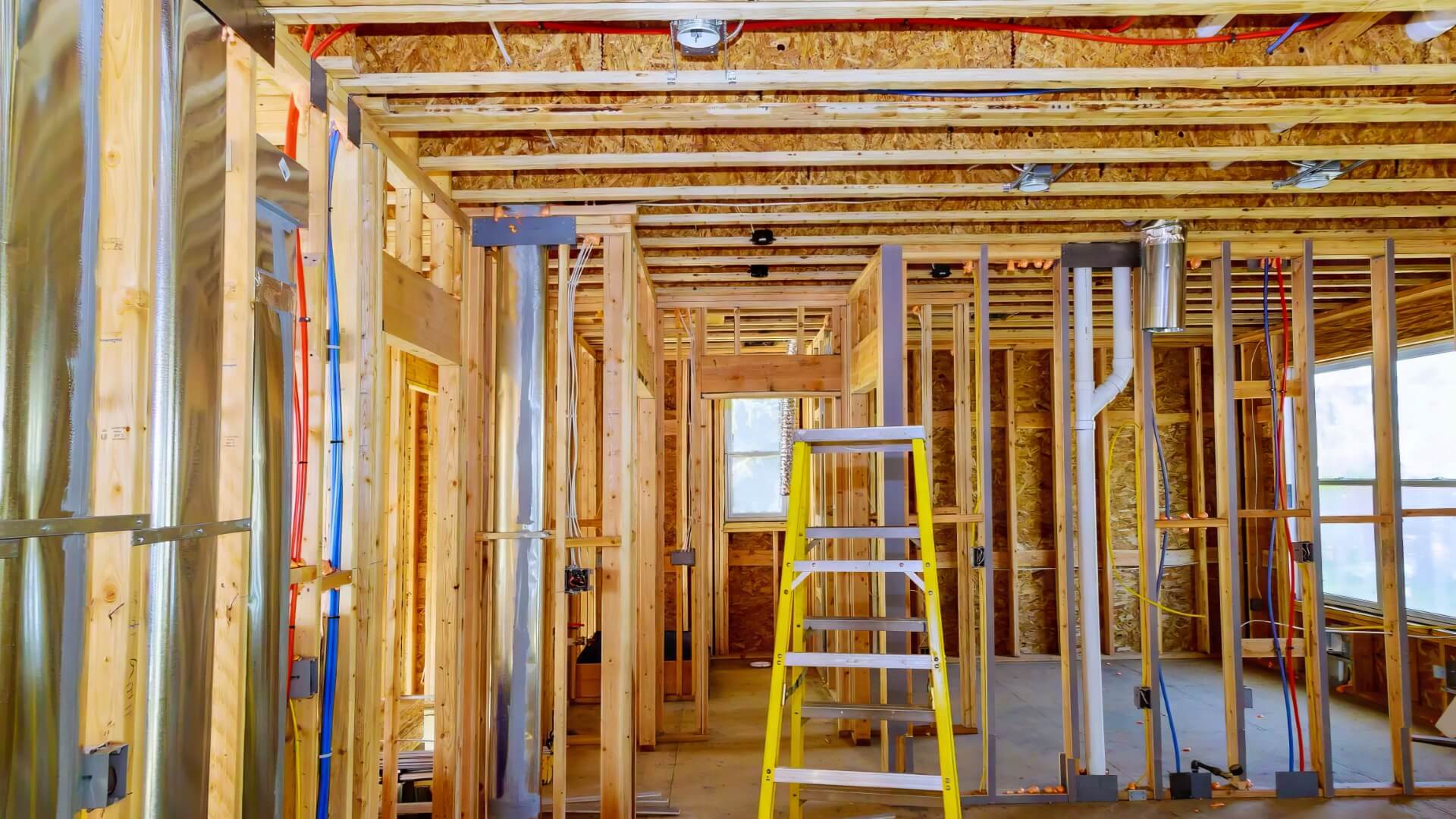
Natural Gas vs. Propane: What’s the Difference?
Propane and natural gas are popular fuel sources, but have different origins and properties. Propane delivers more BTUs per cubic foot. Natural gas is piped underground to homes.
Read MoreThere are certain plumbing issues that necessitate immediate attention from emergency plumbing services. Getting on top of these situations, like a burst pipe water call, quickly can prevent further damage to your home.
In urgent scenarios where water damage is a risk, it’s time to call plumber specialists immediately for:
Our team of emergency plumbers is available 24/7 to respond to urgent plumbing issues promptly. We aim to be available for assistance at all times, swiftly addressing the problems that can arise in your property within the hour for urgent plumbing call outs.
For non-critical issues that can be deferred to the next business day, reserve emergency plumbing services for legitimate crises that require prompt intervention.
Burst pipes are a common plumbing emergency. Symptoms such as diminished water pressure, leaks resulting in water streaks on the ceilings or walls, and mysterious puddles suggest a serious problem. A burst pipe leak can end up wasting a significant amount of water rapidly, causing water damage and mould growth if not addressed immediately.
Our Sydney-based plumbers utilise thermal imaging cameras and leak detection tools to precisely locate issues, such as pipes that have burst behind walls or beneath floors. We possess the expertise and equipment required to fix issue with copper, PEX, and galvanised steel pipes effectively.
Gas leaks pose a serious risk to your family’s safety and demand immediate attention. Warning signs of a gas leak include a 'rotten egg’ smell, hissing sounds coming from around gas appliances, bubbles appearing in water, yellow/brown stains around appliances, or a pilot light that can occur keeping blowing out.
Our emergency plumbers can employ gas detection meters to accurately locate leaks’ sources and positions. Our Sydney emergency plumbers can then repair or replace damaged sections of water pipe as necessary.
Backed up drains often constitute plumbing emergencies that call for prompt action to avert health risks and domestic overflows. Warning signs include a sewage smell, slow draining water, bubbles appearing in toilet bowls, and water pooling around drain exits outside.
We employ drain cameras and hydro jetting to effectively clear blocked drains and remove obstructing tree roots or debris. Replacing cracked and damaged drain pipes can prevent future backups.
Experiencing a lack hot water scenario is considered an emergency issue for renters. No hot water can be caused by issues affecting your water heater, such as a faulty unit, thermostat, or gas control valve. Leveraging their considerable skill, our New South Wales plumbers can identify and rectify faults to reinstate hot water service.
Furthermore, we offer supply and installation of replacement hot water systems, including gas storage, electric, and solar options, should yours be irreparable.
Upon their arrival at your home, you can expect an emergency plumber to:
Do not hesitate to inquire with your emergency plumbing service provider – comprehending the process is crucial. They prioritise offering peace of mind through ensuring your safety.
On arrival, an emergency plumber will place safety at the forefront. A preliminary walkthrough and risk evaluation will precede any repair work. This involves:
This effective reaction entails appraising the circumstances, ascertaining the required services, forestalling additional damage, and occasionally waiting until the upcoming business day for plumbers to secure parts needed for extensive repairs. Then, the plumber will provide accurate estimates, suggest resolutions for the fundamental issue, and arrange for further repairs.
Emergency plumbers arrive equipped to perform provisional repairs to mitigate hazards and reinstate essential services, allowing residential business owners to maintain daily operations until comprehensive repairs are effected.
Emergency plumbers employ a variety of tools and techniques for swift and accurate diagnosis of plumbing problems. This empowers them when comes to offering fixes and solutions that are custom-fit to the unique needs of your plumbing system.
Some key tools and methods used include:
Emergency plumbers now rely on tablet interfaces to run diagnostics, thermal imaging lets them “see” through walls, and tools provide metrics that remove the guesswork in identifying and fixing problems. This gives us the insight needed to restore normal services safely and quickly.
Don’t hesitate to ask your emergency plumber about the methods and technology they utilise when onsite - most carry over $15,000 worth of professional gear in their vans to tackle any plumbing emergency.
After diagnosing the problem, the emergency plumber will elucidate the damage’s extent and detail available repair alternatives. This allows you to make an informed decision on the best course of action.
The plumber will determine if a temporary fix suffices to stabilize the circumstances until a more thorough repair can be arranged. For example, clamping a burst pipe to stop the leak. They may also recommend upgrades for ageing pipes and appliances to avoid issues reoccurring.
For severe leaks and burst pipes that can significantly impact your home, the plumber might recommend a complete replacement of the impacted segment over a makeshift repair. Whole drainage or sewer pipe replacements could be proposed if tree roots or collapsed lines are the underlying cause of blockages.
Furthermore, if appliances such as hot water systems and toilets surpass repair viability, replacement with modern, energy-saving models will be considered.
The plumber will outline the upfront costs, expected timeframes, warranty coverage and benefits of each possible solution. With costs and options laid out clearly, you can review and approve the best approach before authorising the emergency plumber to commence work.
Verify the credentials of any professional, ensuring they have the appropriate qualifications, licensing, and insurance before they work in your home. Request to see credentials such as their plumbing licence and liability insurance certificate from your local plumber.
Obtain transparent quotes detailing call-out fees, hourly rates, and total cost estimates. Verify available payment methods – many plumbers accept credit card payments on location.
The plumber will diagnose and thoroughly evaluate the issue, then articulate the problem clearly. Inquire about both interim and lasting solution outlines.
If extensive repairs are needed down the track, check the plumber provides ongoing support. Ask about their availability to schedule follow-up Drain Repairs
Reputable plumbers typically offer a workmanship guarantee on emergency repairs for a minimum of 12 months. Get warranty details in writing before approving repairs.
Propane and natural gas are popular fuel sources, but have different origins and properties. Propane delivers more BTUs per cubic foot. Natural gas is piped underground to homes.
Read MoreUpgrading a gas meter improves safety and may be necessary over time. Our experienced team can guide you through the process, costs and timeframes involved to upgrade your gas meter.
Read MoreIf pipe relining fails due to severe damage, replacement may be required. We provide affordable pipe repairs in Sydney without excavation. Call today for pipe assessments. Our expert team will determine if pipe relining or full replacement is needed.
Read MoreWoollahra, 2025 NSW
We will call back as soon as possible.




